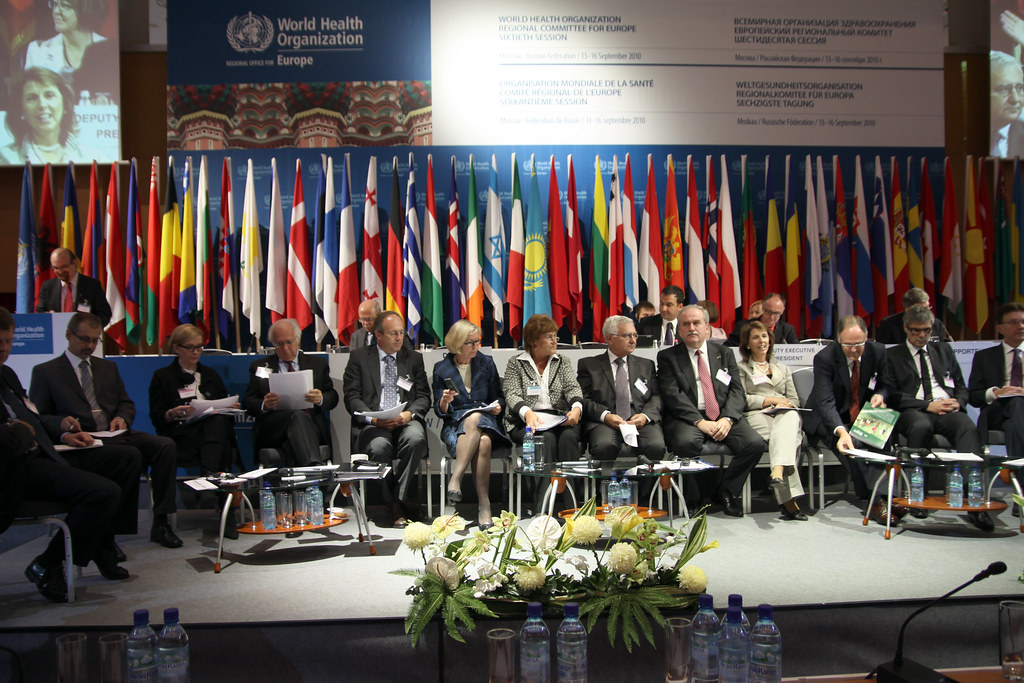Originally published on December 2, 2022
“Climate reparations” are immoral
1. They punish the free world for fossil fuel use that has made the whole world better, including safer from climate.
2. They punish poor people by taking away their freedom to use the fossil fuels they need to flourish.
-
The hottest idea emerging from the UN's COP27 climate conference, enthusiastically supported by the Biden Administration, is “climate reparations”: wealthy countries paying poor countries to make up for climate-related harm.
This is an immoral idea that Congress should reject.1
-
“Climate reparations” are based on two false assumptions:
-
Free, wealthy countries, through their fossil fuel use, have made the world worse for poor countries.
-
The poor world’s main problem is dealing with climate change, which wealth transfers will help them with.
-
-
Free, wealthy countries, through their fossil fuel use, have not made the world worse for poor countries—they have made it far, far better.
Observe what has happened to global life expectancies and income as fossil fuel use has risen. Life has gotten much better for everyone.2
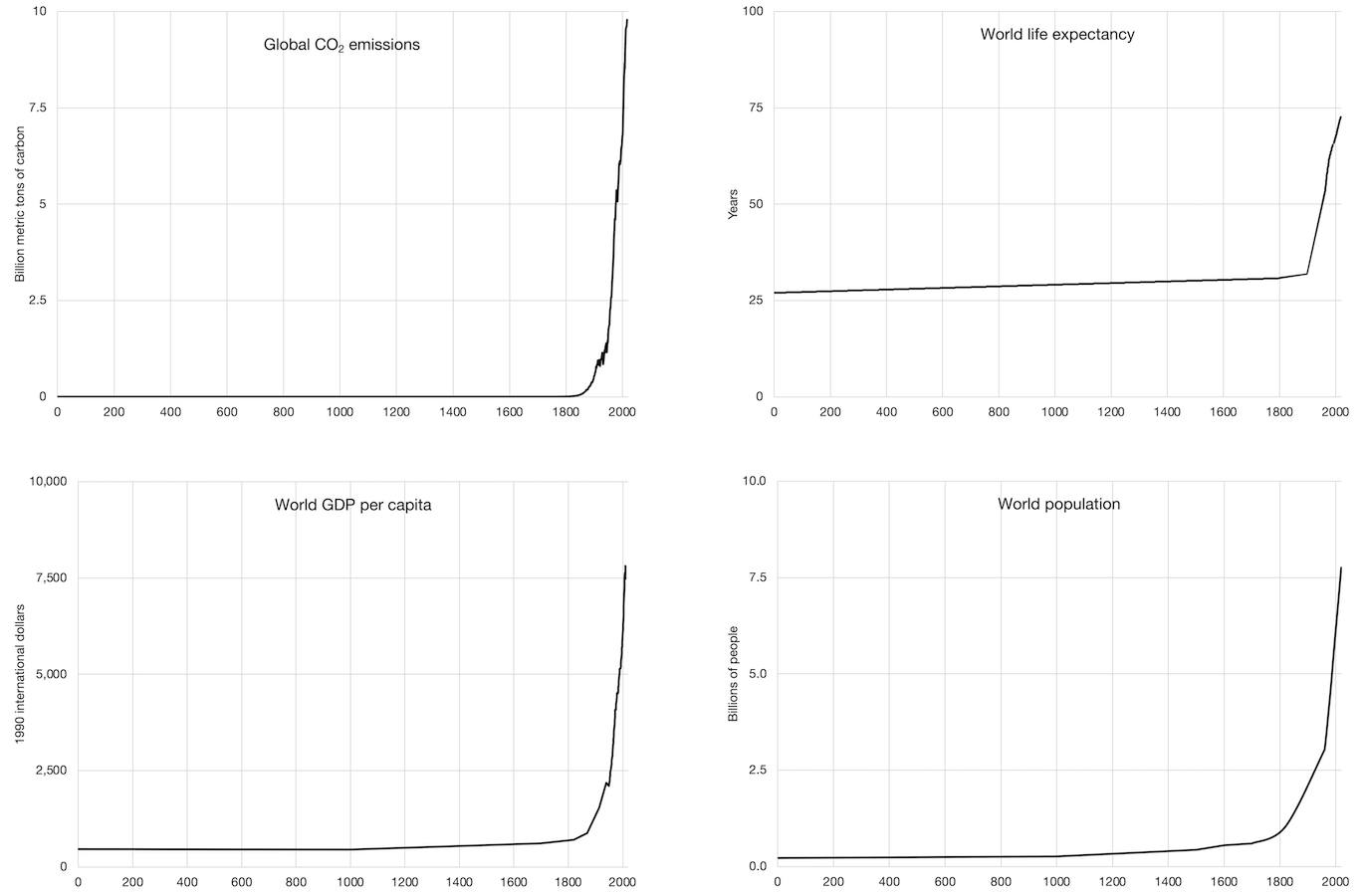
-
The wealthy world’s fossil fuel use has improved life around the world because by using fossil fuel energy to be incredibly productive, we have 1) made all kinds of goods cheaper and 2) been able to engage in life-saving aid, particularly in the realms of food, medicine, and sanitation.
-
Without the historic use of fossil fuels by the wealthy world, there would be no super-productive agriculture to feed 8 billion humans, no satellite-based weather warning systems, etc. Most of the individuals in poor countries would not even be alive today.
-
The wealthy world’s fossil fuel use has been particularly beneficial in the realm of climate.
Over the last 100 years, the death rate from climate-related disasters plummeted by 98% globally.
A big reason is millions of lives saved from drought via fossil-fueled crop transport.3
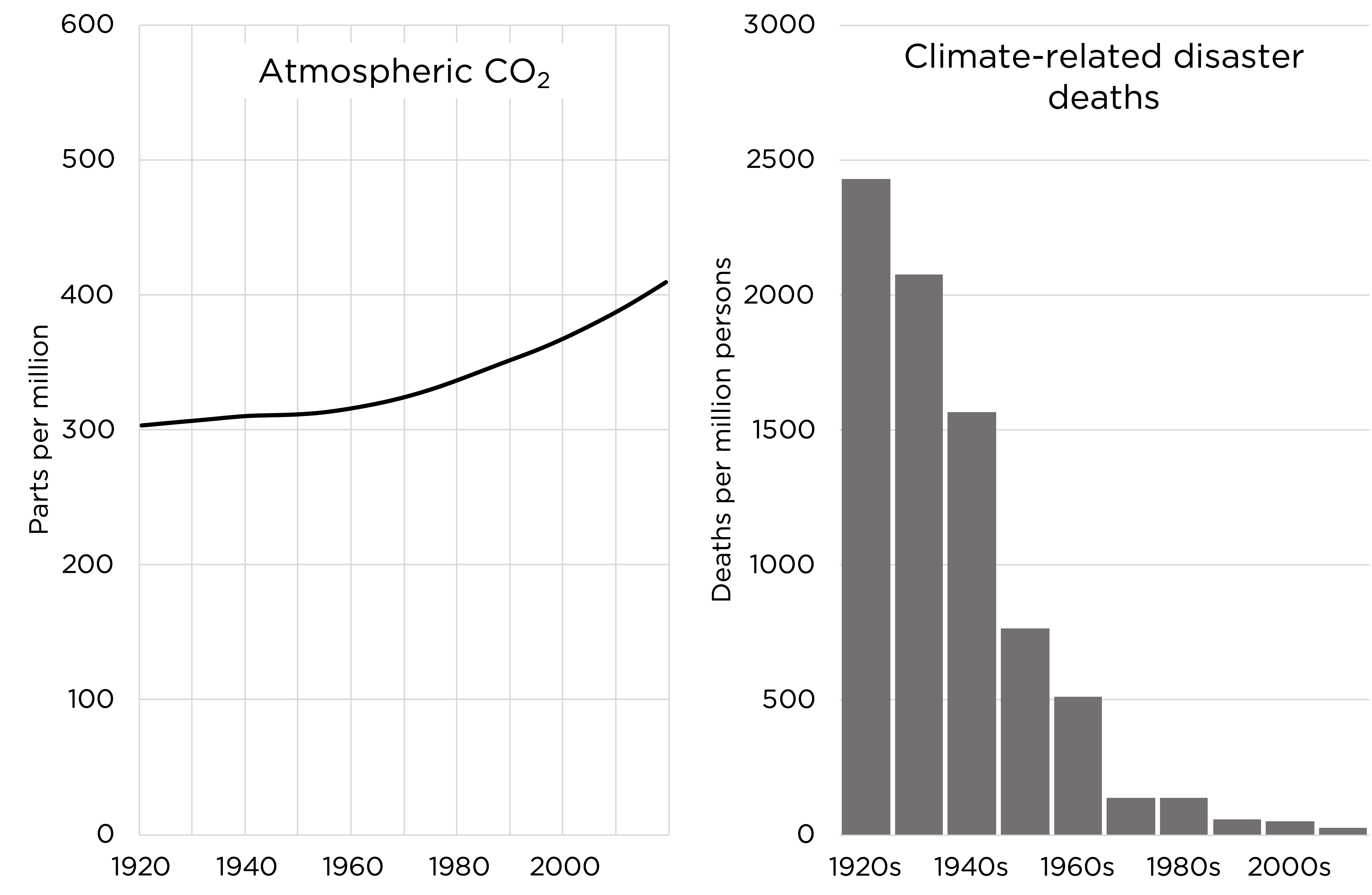
-
The “climate reparations” movement ignores the fact that the wealthy world’s fossil fuel use has made life better, including safer from climate, in the poor world.
This allows it to pretend that the poor world’s main problem is dealing with rising CO2 levels.
-
The poor world’s main problem is not rising CO2 levels, it is poverty—which is caused by lack of freedom, including the crucial freedom to use fossil fuels.
Poverty makes everything worse, including the world’s massive natural climate danger and any danger from more CO2.
-
While it’s not true that the wealthy world has increased climate danger in the poor world—we have reduced it—it is true that the poor world is more endangered by climate than the wealthy world is.
The solution is for the poor to get rich. Which requires freedom and fossil fuels.4
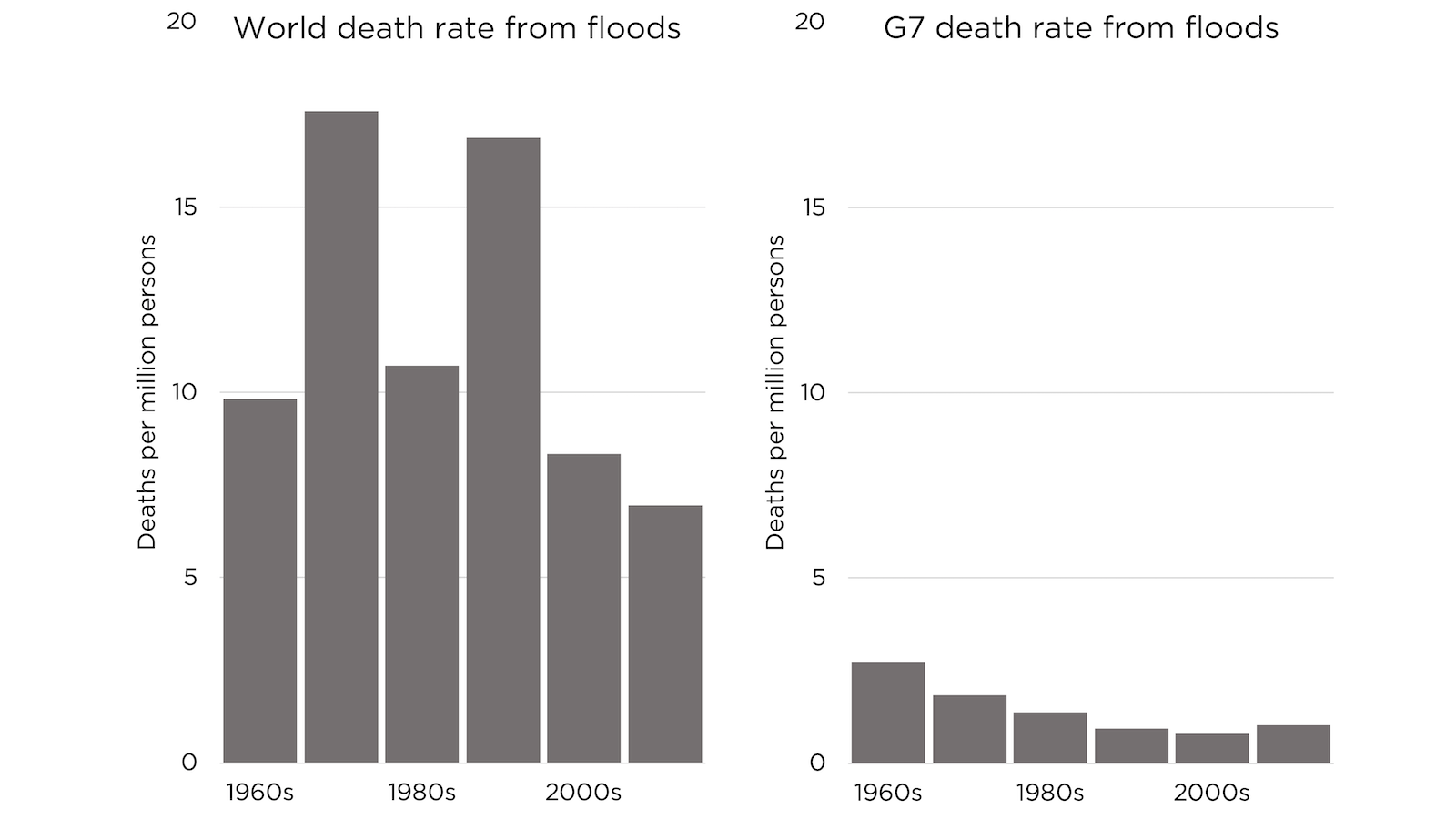
-
Every nation that has risen out of poverty has done so via pro-freedom policies—specifically, economic freedom.
That’s how resource-poor places like Hong Kong, Singapore, and Taiwan lifted themselves out of poverty. Resource-rich places like Russia or Congo have struggled due to lack of economic freedom.
-
Even China, which is unfree in many ways (including insufficient protections against pollution) dramatically increased its standard of living via economic freedom—particularly in the realm of industrial development where it is now in many ways much freer than the US and Europe.
-
A crucial freedom involved in rising prosperity has been the freedom to use fossil fuels.
Fossil fuels are a uniquely cost-effective source of energy, providing energy that’s low-cost, reliable, versatile, and scalable to billions of people in thousands of places.5
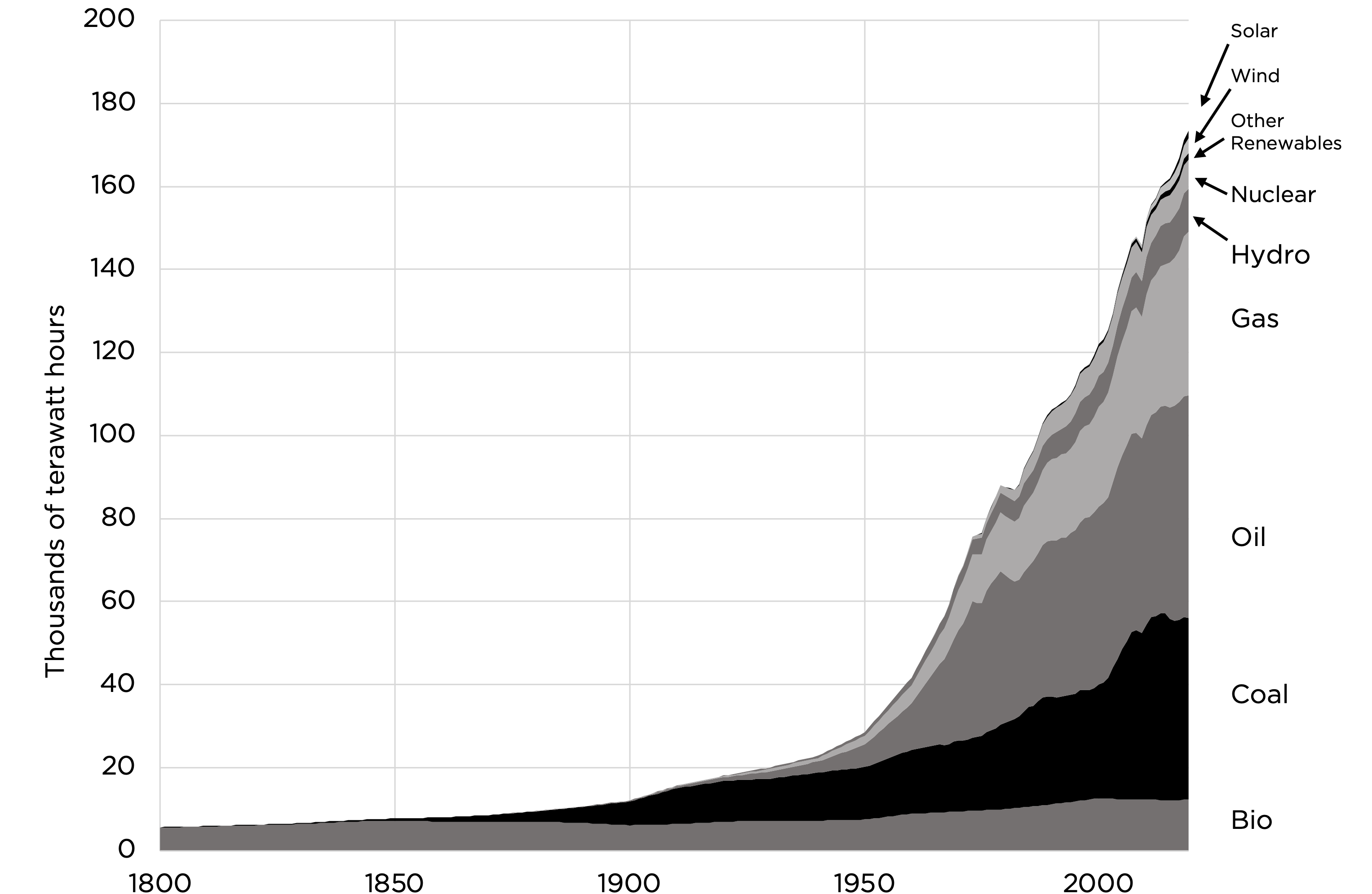
-
Time and again nations have increased their prosperity, including their safety from climate, via economic freedom and fossil fuels.
Observe the 7X increase in fossil fuel use in China and India over the past 4 decades, which enabled them to industrialize and prosper.6
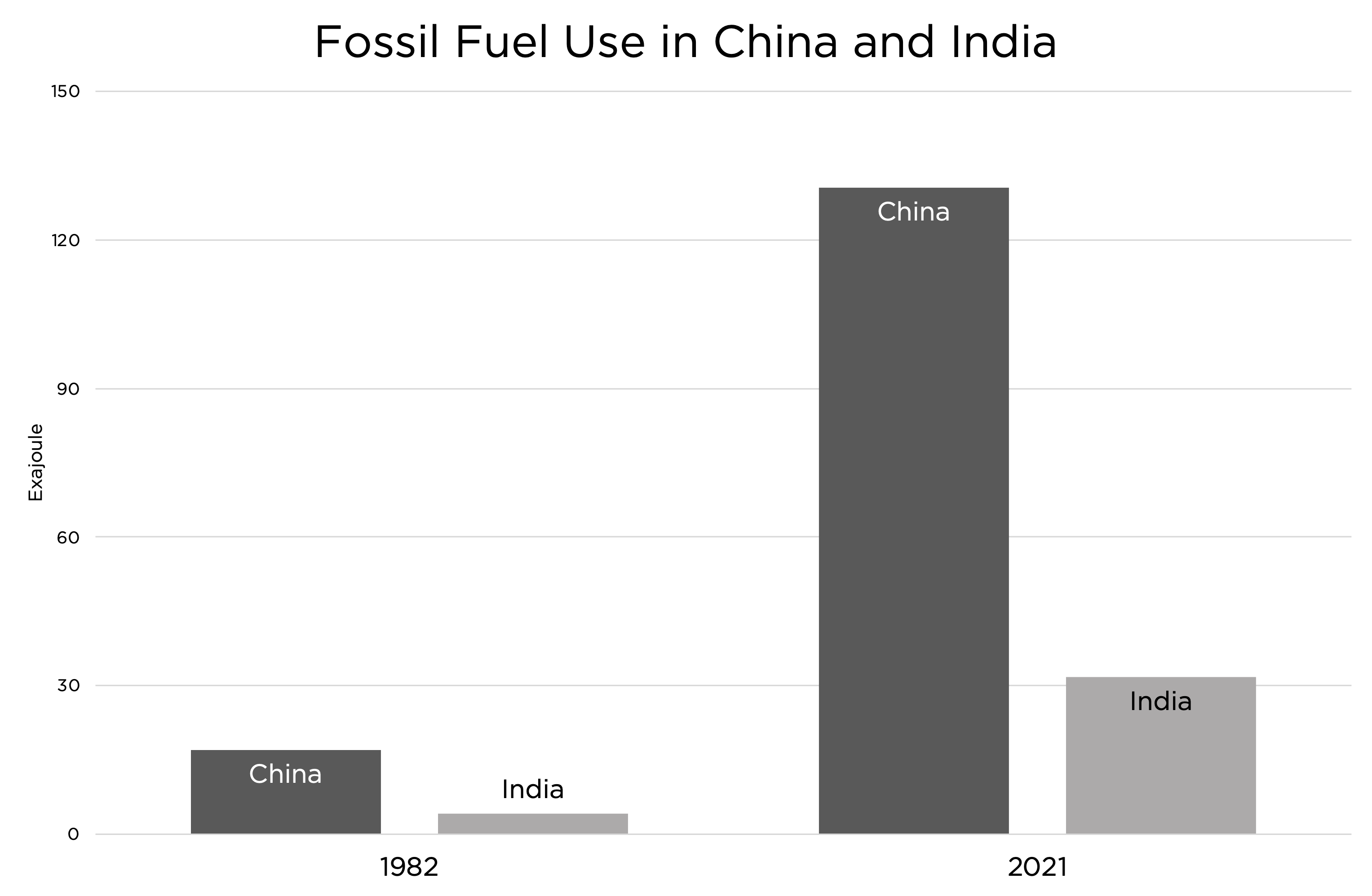
-
For the world’s poorest people to be more prosperous and safer from climate, they need more freedom and more fossil fuels.
The “climate reparations” movement seeks to deny them both.
-
The wealthy world should communicate to the poor world that economic freedom is the path to prosperity, and encourage the poor world to reform its cultural and political institutions to embrace economic freedom—including fossil fuel freedom.
Our leaders are doing the opposite.
-
Instead of promoting economic freedom, including fossil fuel freedom, wealthy “climate reparations” advocates like John Kerry are offering to entrench anti-freedom regimes by paying off their dictators and bureaucrats to eliminate fossil fuel freedom.
This is disgusting.7
-
The biggest victim of “climate reparations” will be the world’s poorest countries, whose dictators will be paid off to prevent the fossil fuel freedom that has allowed not just the US and Europe but also China and India to dramatically increase their prosperity.
-
The biggest beneficiary of “climate reparations” will be China, which is already emitting more CO2 than the US and Europe combined. (Though less per capita.)
While we flagellate and cripple ourselves, China will use fossil fuels in its quest to become the world’s superpower.8
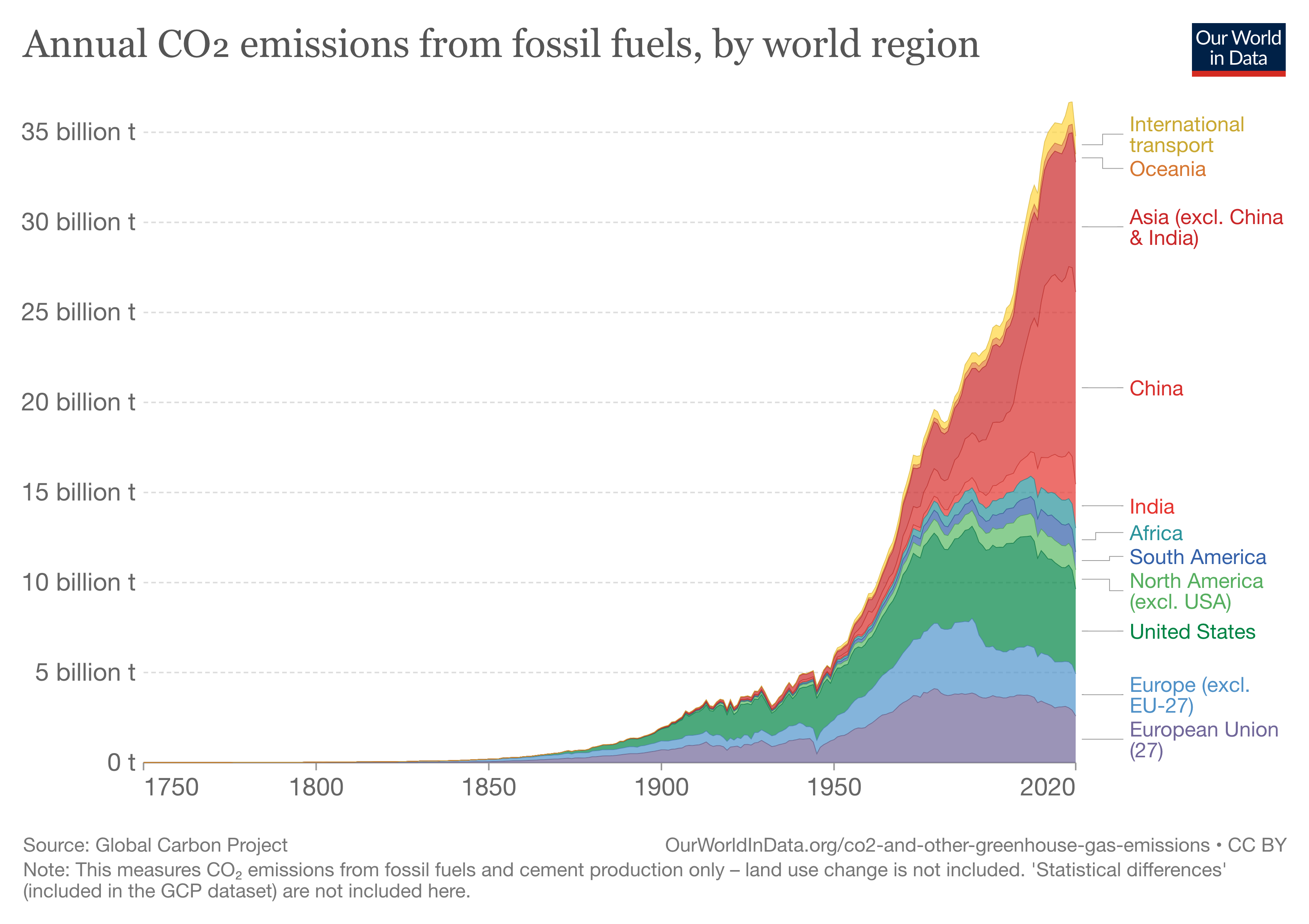
-
The second biggest beneficiary of “climate reparations” will be corrupt do-gooders who get to add anti-fossil-fuel strings to “reparations” dollars and dictate how it's spent—which will surely include lots of dollars for unreliable solar panels and wind turbines made in China.
-
We need leaders in the US and Europe who proudly:
1) Champion the free world’s use of fossil fuels as an enormous good for the world, including its safety from climate.
2) Encourage the poor world to embrace economic freedom and fossil fuels.Tell your Representative to do both.
References
-
Scientific American - COP27 Summit Yields ‘Historic Win’ for Climate Reparations but Falls Short on Emissions Reductions↩
-
Scripps Institution of Oceanography - The Keeling Curve
G. Marland, T.A. Boden, and R.J. Andres, Carbon Dioxide Information Analysis Center, Environmental Sciences Division, Oak Ridge National Laboratory - Global, Regional, and National Fossil-Fuel CO2 Emissions↩
-
UC San Diego - The Keeling Curve
For every million people on earth, annual deaths from climate-related causes (extreme temperature, drought, flood, storms, wildfires) declined 98%--from an average of 247 per year during the 1920s to 2.5 in per year during the 2010s.
Data on disaster deaths come from EM-DAT, CRED / UCLouvain, Brussels, Belgium – www.emdat.be (D. Guha-Sapir).
Population estimates for the 1920s from the Maddison Database 2010, the Groningen Growth and Development Centre, Faculty of Economics and Business at University of Groningen. For years not shown, population is assumed to have grown at a steady rate.
Population estimates for the 2010s come from World Bank Data.↩
-
UC San Diego - The Keeling Curve
Data on disaster deaths come from EM-DAT, CRED / UCLouvain, Brussels, Belgium – www.emdat.be (D. Guha-Sapir).
Population estimates for the 2010s come from World Bank Data.↩
-
Our World in Data - Annual CO₂ emissions from fossil fuels, by world region↩
